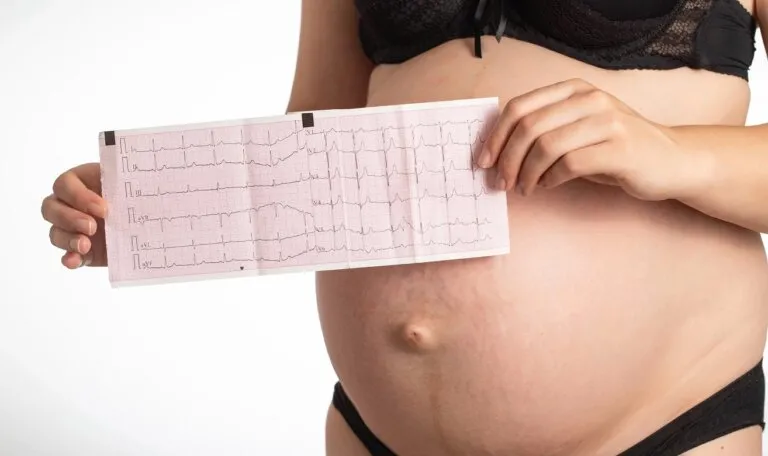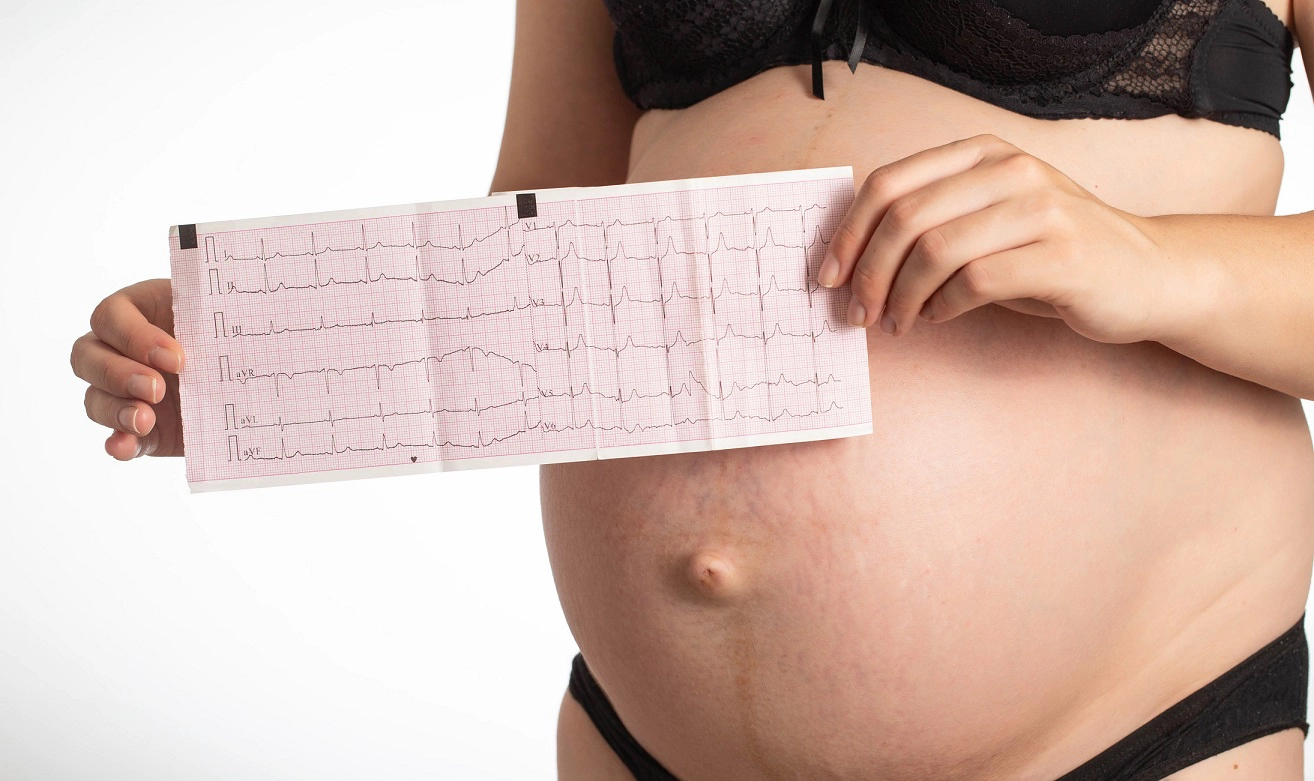A well-functioning cardiovascular system in a pregnant woman is essential for the proper development of the foetus. Although the cardiovascular system undergoes many physiological changes during pregnancy, abnormalities can also occur during this time. What are the most common cardiovascular problems in pregnancy?
Heart problems during pregnancy – changes in the mother-to-be’s body
During pregnancy, many changes take place in the body of the expectant mother. These do not bypass the cardiovascular system either. Physiologically, the volume of circulating blood and the heart rate increase. The blood pressure drops. The blood pressure of pregnant women should therefore be lower than outside pregnancy. The enlarging uterus, together with the baby, presses on the inferior vena cava, making venous return more difficult, especially in the supine position. This in turn can lead to fainting or dizziness.
Heart problems in pregnancy – Fainting
A fairly common problem for pregnant women is fainting spells. They can occur in any trimester of pregnancy. They can be caused by electrolyte imbalances, low blood sugar, anaemia or hypotension (low blood pressure). These are causes that do not require special treatment in most cases. However, sometimes the fainting is due to a more serious cardiac cause, such as a previously undetected heart defect or cardiomyopathy. In this case, the intervention of a specialist is required.
If low blood pressure is responsible for the fainting, care should be taken to ensure adequate fluid intake. The expectant mother should drink at least 2.5 litres of fluid per day, preferably non-carbonated, unsweetened and of course alcohol-free. Hydration is especially important on hot days. Standing for long periods of time and staying in stuffy rooms should also be avoided.
Heart problems during pregnancy – cardiac arrhythmias
Cardiac arrhythmias in pregnant women are relatively common. They may be a continuation of a problem that existed before pregnancy or may occur for the first time during pregnancy. In most cases, the use of antiarrhythmic drugs is not necessary, but in any case the patient should be consulted by a cardiologist. The most common symptom of a cardiac arrhythmia is the so-called palpitations. It is felt by the expectant mother as a faster and “stronger” heartbeat. To diagnose cardiac arrhythmia, an echo of the heart can be performed as well as a Holter ECG, where the heart is monitored around the clock.
Cardiovascular problems in pregnancy – high blood pressure
The most common heart problem in pregnant women is high blood pressure. It can be chronic or triggered by pregnancy. It is important to know that many of the medications used to treat high blood pressure outside of pregnancy should not be used in expectant mothers. Pregnant women should measure their blood pressure daily, and if the level is above 140/90 mmHg, consult the attending physician or the emergency room. Uncontrolled high blood pressure can lead to the development of dangerous complications such as pre-eclampsia or detachment of the placenta.











